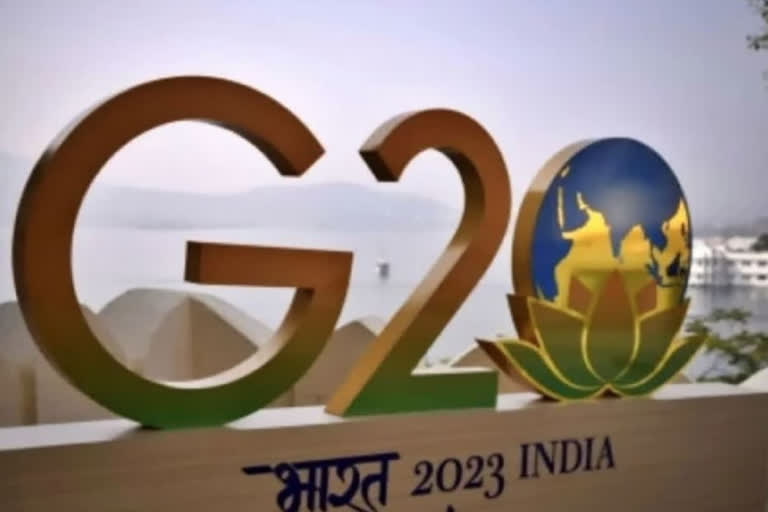New Delhi: The G20 Foreign Ministers' meeting hosted under India's Presidency ended with no joint communique, once again being disrupted by the differences and divide between Russia and China and the West over the Ukraine conflict. Responding to the media as to why there was no joint communique, but only an outcome document after the meeting, Jaishankar said, "There were very large issues on which there was agreement and very frankly they were concerned with the Ukraine conflict on which there were divergences. There were differences which could not be reconciled between various parties, who had different positions".
He pointed out that there were agreements and considerable meetings of minds on the bulk of the issues that concern the global south. "If we had a perfect meeting of minds on all issues, it would have been a collective statement. In terms of the outcome of the document, you will see that there was almost 90% agreement. Just, on two paras we were not able to get everybody on the same page", Jaishankar told the media here in New Delhi.
He emphasised that there were issues on which there was agreement like strengthening multilateralism, promoting food and energy security, climate change, gender issues, and counter-terror". According to sources, Russia and China opposed the wording of the statement on the Ukraine conflict. Last month, due to the strong divide between China-Russia combined, and the West on the conflict, the G20 Finance Ministers meeting and Central Bank Governors (FMCBG) meeting held in Bengaluru ended with no communique.
Also read:India's G20 presidency can help in ending hostilities in Ukraine: Italian PM Meloni
The draft communique had two paras on the Ukraine crisis taken from the leaders’ declaration or joint statement issued at the last G20 Summit in Indonesia, but China and Russia did not agree to it saying they didn't want those paragraphs to be in the communique. The G20 foreign minister's outcome document today said that most members strongly condemned the war in Ukraine and stressed it is causing immense human suffering and exacerbating existing fragilities in the global economy- constraining growth, increasing inflation, disrupting supply chains and noted "there were other views and different assessments of the situation and sanctions".
"The war in Ukraine has further adversely impacted the global economy. There was a discussion on the issue", Chair Summary & Outcome document of G20 Foreign ministers' meeting read. "Mindful of G20’s leadership role, we reaffirm the steadfast commitments of our leaders, in pursuit of the objective of the United Nation Framework Convention on Climate Change (UNFCCC), to tackle climate change by strengthening the full and effective implementation of the Paris Agreement", the G20 leaders statement said.
India has time and again chosen to abstain from voting at UNSC or UNGA and other international fora on resolutions against Russia over the conflict. To maintain its strong ties with Russia and to boost its purchase of Russian oil, India has been treading cautiously and has been taking a very neutral approach to the conflict, reiterating that the dispute should end through dialogue and diplomacy.
